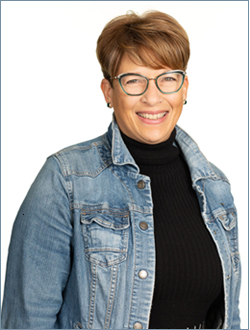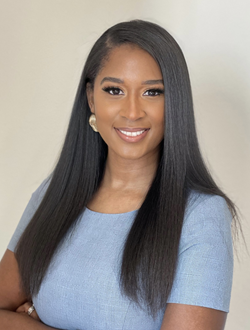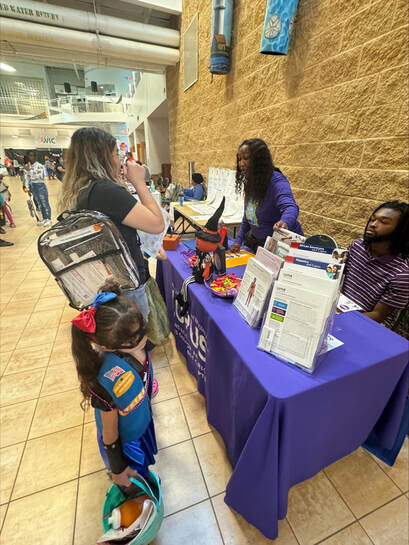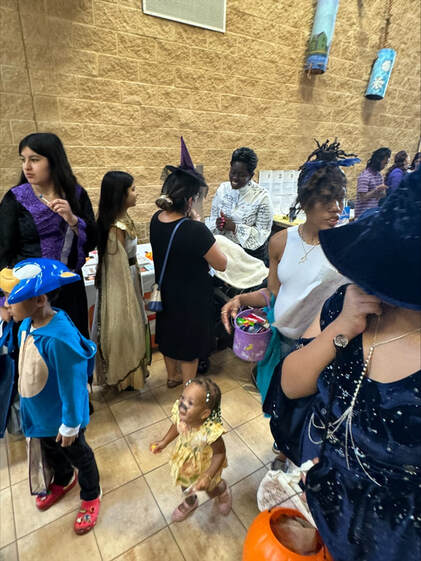February 2024 Featured Interview
Living with Lupus
A Conversation with
Anne Marie Blacketer
CEO of Lupus Foundation of America Texas Gulf Coast Chapter
&
Monika Somerville
Lupus Warrior
About Lupus Foundation of America (LFA):
The Lupus Foundation of America consists of chapters, offices, and support groups in communities throughout the United States. The foundation's mission is to improve the quality of life for all people affected by lupus through programs of research, education, support and advocacy. LFA is focused on achieving the following disease-specific outcomes: reducing time to diagnosis, ensuring people with lupus have an arsenal of safe and effective treatments, expand direct services, and increase access to treatment and care. The organization has made pioneering contributions toward ending the brutal impact of lupus. Its efforts stimulated advances in lupus research that are providing insight into the underlying causes of lupus and its progression while creating unprecedented opportunities to expand the future knowledge base for lupus.
The Lupus Foundation of America consists of chapters, offices, and support groups in communities throughout the United States. The foundation's mission is to improve the quality of life for all people affected by lupus through programs of research, education, support and advocacy. LFA is focused on achieving the following disease-specific outcomes: reducing time to diagnosis, ensuring people with lupus have an arsenal of safe and effective treatments, expand direct services, and increase access to treatment and care. The organization has made pioneering contributions toward ending the brutal impact of lupus. Its efforts stimulated advances in lupus research that are providing insight into the underlying causes of lupus and its progression while creating unprecedented opportunities to expand the future knowledge base for lupus.
Lupus is an autoimmune disease that can cause pain, redness, and swelling in any part of the body. Because it can mimic other diseases, it’s often difficult to diagnose. In fact, in many cases, a successful diagnosis can take years to achieve. But in some areas of the country, lupus still is little known among both the public and healthcare workers.
Anyone can develop lupus but, according to the Centers for Disease Control and Prevention, 90% of lupus diagnoses are in women aged 15 to 44 years. Additionally, certain racial or ethnic groups, including people who are African American, Asian American, Hispanic/Latino, or Pacific Islander, are at greater risk, as are people who have a family member with lupus or another autoimmune disease.
Anyone can develop lupus but, according to the Centers for Disease Control and Prevention, 90% of lupus diagnoses are in women aged 15 to 44 years. Additionally, certain racial or ethnic groups, including people who are African American, Asian American, Hispanic/Latino, or Pacific Islander, are at greater risk, as are people who have a family member with lupus or another autoimmune disease.
To try to raise awareness, Carol Lippert Gray, Sanctuary’s associate editor, recently spoke with Anne Marie Blacketer, CEO of the Lupus Foundation of America Texas Gulf Coast Chapter in Houston, Texas, and Monika Somerville, a training manager at a hospital there who lives with lupus and volunteers for the Gulf Coast Chapter.
Anne Marie Blacketer Offers Information About Lupus and Discusses the Services and Resources the Texas Gulf Coast Chapter Provides
Can you provide us with some statistics about the prevalence of lupus to give us some context?
Lupus (at last count in 2016) has an average of 15,000 diagnoses every year, and 25,000 people fight a losing battle every year. About 1.2 to 1.3 million people are living with lupus today.
One of the problems with it, though, is that it can take between 7 to 15 years to receive a diagnosis. That statistic is at the low end if you’re Caucasian, at the high end if you’re not. Also, there’s a lack of access to high-quality care. High-level care typically is inaccessible to people in lower income areas.
Lupus (at last count in 2016) has an average of 15,000 diagnoses every year, and 25,000 people fight a losing battle every year. About 1.2 to 1.3 million people are living with lupus today.
One of the problems with it, though, is that it can take between 7 to 15 years to receive a diagnosis. That statistic is at the low end if you’re Caucasian, at the high end if you’re not. Also, there’s a lack of access to high-quality care. High-level care typically is inaccessible to people in lower income areas.
|
Is there a way to change that?
We have to educate the community itself. About 63 percent of people don’t know anything about lupus. Educate the community, community health centers, and healthcare workers. Have people who are trained to navigate the healthcare system live and work in the same area. That leads to trust and a comfort level [among the general population]. We train community health workers to identify lupus and in what to do next. That helps to shorten the time to diagnosis. And the faster you get a diagnosis, the faster you can get treatment. Lupus doesn’t have to take a life if people can get proper care. Who does your chapter serve? Our chapter serves about 44,000 individuals living along a swath of the Texas Gulf Coast. Is it fair to call this situation a crisis? The real battle is when it comes to education. You may end up in a hospital that doesn’t have any idea how to treat lupus, and yet more people are living with lupus than with MS or AIDS. Where is the education of professionals falling short? When we talk to medical professionals — nurse practitioners, physician’s assistants, primary care providers — we find that they might have spent one day or one week learning about these so-called rare diseases. We started working with medical schools to help broaden the knowledge of lupus, so students understand that the diagnosis is devastating for the lupus patient. There also are ways professionals can educate themselves: Get a book. Use the internet. Call a colleague. This disease is so small in relative numbers that it doesn’t spur research. But consider: 90 percent of all lupus warriors are women. Yet there are only three federally approved drugs for lupus vs. six for erectile dysfunction. And erectile dysfunction isn’t taking anybody’s life. |
Types and Symptoms of Lupus
Lupus Foundation of America There are Four Types of Lupus:
Common Symptoms:
How Lupus Can Affect Skin and Hair:
Note: Lupus symptoms may come and go, and they can change over time. |
|
Volunteer & Lupus Warrior Nichelle
Photo Courtesy: LFA Texas Gulf Coast Chapter |
There also is a difference in the system for those who are poor, who have to live and work in poorer communities, and who are not white. In those areas, the disease is not as widely known. It’s challenging to understand why it doesn’t have the street cred of other diseases. I’m extremely fortunate to have the ability to empathize and understand because I have a condition that is chronic and painful. If we can get a physician who actually listens, we can do all kinds of things. If the physician doesn’t get to know who we are as human beings, we won’t get the care we need. You have to get a person who will look and who will listen. Where does the Lupus Foundation fit in? We vet doctors and research them. We send follow-up surveys to patients. We’re looking to [learn about patients’ experiences directly from the patients]. The education of the patient and the community as well as teaching people with lupus to advocate for themselves are [all important pieces of the puzzle]. It's also important to point out that for the bulk of patients, testing is very inexpensive and very simple — a blood test and a urine test. That’s it. It’s not invasive or time consuming, and insurance will pay for it. |
|
What else should people know?
We call lupus the equal opportunity destroyer. It doesn’t care if it affects the skin, lungs, hair, stomach, or kidneys — it goes after everything. You can’t just treat the symptoms because it attacks the body itself. If you treat the lupus, you can thrive with it for years. And everyone should have access to high-quality healthcare. What has your chapter done that you’re particularly proud of? There’s so much to do. We did over 53 education and outreach events. We reached over 3,000 people, who now are members of our organization. We bring all the services they may need to make them eligible to return to the healthcare system: technology, food, childcare, training, respite care, peer mentors, support groups. We educate pharmaceutical providers. It’s empowering individuals to take back control of their healthcare, and the physicians are very enthusiastic when they realize we’re empowering the patient. Where do you find sanctuary? I go to church, and I sing and sing and sing, or I go to the tennis court and hit the patootoo out of a little green ball. This is a second career for me. My husband is retired, and he helps a lot. I can’t do this job unless he’s on board. I call him, [instead of a volunteer], a volun-told. |
Learning About Lupus with Joann
Photo Courtesy: LFA Texas Gulf Coast Chapter |
Lupus Warrior Monika Somerville Shares a Bit of Her Journey
When were you diagnosed with lupus?
|
My diagnosis was pretty quick. In 2015, I was just married and relocated to Houston. I had swelling and joint pain in my hands and feet. At first, I attributed it to the southern heat and humidity. But I started to have difficulty moving my hands and arms. I went to a clinic, where they said the symptoms sound autoimmune, and they ordered lab tests. Within a week or two I learned they believed it to be lupus.
[For some people], it’s easy to write a lot of the symptoms off. But spreading awareness to communities disproportionately affected is important, so they can understand early signs and get to a healthcare provider. |
"In 2015, I was just married and relocated to Houston. I had swelling and joint pain in my hands and feet. At first, I attributed it to the southern heat and humidity. But I started to have difficulty moving my hands and arms. I went to a clinic, where they said the symptoms sound autoimmune, and they ordered lab tests." ~ M. Somerville |
How did you find out about the Lupus Foundation?
I followed their Instagram page. I wasn’t ready to talk about it and share at first. But in 2022, I was ready to share. I saw a notice about a walk to end lupus. My family and friends learned about it because I was trying to raise money.
It’s been a joy to work with them. Our team came in first place last year [for amount of money raised], and I’ve been invited to be a chair for the walk. I’ve also had the opportunity to join Anne Marie on a local news station to get the word out about listening to your body.
What’s your day job?
I’m a training manager at a hospital in Houston for EPIC electronic medical records. I assist with managing training for providers and clinical staff. So, I have an understanding as a patient and as a person on the other side.
What’s your advice to other lupus warriors?
Advocate for yourself if your symptoms are being ignored. Get a second or third opinion. Listen to your body. Take care of yourself. You’re not alone on this journey. This can be scary. It’s not something most people know about. I stay on top of my health to have a shot at really beating this and hoping for a cure. And by sharing, you can help someone.
Where do you find sanctuary?
In prayer. There’s a lot of unknowns in health conditions. It helps me level out, stay centered, and keep fighting.
I followed their Instagram page. I wasn’t ready to talk about it and share at first. But in 2022, I was ready to share. I saw a notice about a walk to end lupus. My family and friends learned about it because I was trying to raise money.
It’s been a joy to work with them. Our team came in first place last year [for amount of money raised], and I’ve been invited to be a chair for the walk. I’ve also had the opportunity to join Anne Marie on a local news station to get the word out about listening to your body.
What’s your day job?
I’m a training manager at a hospital in Houston for EPIC electronic medical records. I assist with managing training for providers and clinical staff. So, I have an understanding as a patient and as a person on the other side.
What’s your advice to other lupus warriors?
Advocate for yourself if your symptoms are being ignored. Get a second or third opinion. Listen to your body. Take care of yourself. You’re not alone on this journey. This can be scary. It’s not something most people know about. I stay on top of my health to have a shot at really beating this and hoping for a cure. And by sharing, you can help someone.
Where do you find sanctuary?
In prayer. There’s a lot of unknowns in health conditions. It helps me level out, stay centered, and keep fighting.
Anne Marie Blacketer, CFRE, currently serves as the CEO of Lupus Foundation of America’s Texas Gulf Coast Chapter. A stand-alone affiliate of the national organization, the Texas Gulf Coast Chapter supports the mission of LFA to shorten the time to diagnosis of lupus through community-based education and advocacy programs held throughout the Texas Gulf Coast.
Anne Marie joined LFA Texas Gulf after beginning her second career in nonprofit work in 2012 at The Center in Houston. Working in the not-for-profit space in multiple disciplines including business development, community relations, major gifts officer, and Chief Development Officer, Anne Marie joined the fight against lupus in October 2022 – and has not looked back!
Using her experience in sales and marketing in the for-profit world, combined with the lessons learned from nonprofit agencies across Houston, she applies real world experience to the nonprofit “heart” for the mission. The goal: to ensure the nonprofit chapter of Texas Gulf Coast is available for any lupus warrior in need for decades to come.
Anne Marie is happily married to her “voluntold” husband, Kevin. They share in the joy of his daughter Bess’ recent marriage, playing tennis, collecting wine, and spending time enjoying their home and dogs Roscoe and Maggie!
Anne Marie joined LFA Texas Gulf after beginning her second career in nonprofit work in 2012 at The Center in Houston. Working in the not-for-profit space in multiple disciplines including business development, community relations, major gifts officer, and Chief Development Officer, Anne Marie joined the fight against lupus in October 2022 – and has not looked back!
Using her experience in sales and marketing in the for-profit world, combined with the lessons learned from nonprofit agencies across Houston, she applies real world experience to the nonprofit “heart” for the mission. The goal: to ensure the nonprofit chapter of Texas Gulf Coast is available for any lupus warrior in need for decades to come.
Anne Marie is happily married to her “voluntold” husband, Kevin. They share in the joy of his daughter Bess’ recent marriage, playing tennis, collecting wine, and spending time enjoying their home and dogs Roscoe and Maggie!
Monika Somerville, a native of the Midwest, found her interest in communications and philanthropy at an early age. Monika is a proud alumna of Benedict College where she obtained a Bachelor of Arts degree in mass communications with a concentration in broadcasting.
Monika was crowned Miss Black Indiana USA 2010. She played an active role in her community by participating in and organizing many events, including coat drives, book drives, and walks in efforts to raise awareness. Upon relocating to the Houston area, she began volunteering as an ambassador for the Lupus Foundation of America’s Texas Gulf Coast Chapter and leading “Team Mo Steps To the Cure” in the annual Walk To End Lupus Now fundraiser. She has also volunteered as a reader for Literacy Now, an organization that empowers children and families through literacy. Monika is an active member of the National Coalition of 100 Black Women, Inc., Houston Metropolitan chapter.
Monika received her master’s in business administration with a concentration in executive management from Indiana Wesleyan University. Prior to her current career as an Epic Training Manager for UT Health Houston, Monika traveled the United States consulting for premier hospital organizations. Assisting with change enablement, software installs, training delivery, and curriculum development.
Monika was crowned Miss Black Indiana USA 2010. She played an active role in her community by participating in and organizing many events, including coat drives, book drives, and walks in efforts to raise awareness. Upon relocating to the Houston area, she began volunteering as an ambassador for the Lupus Foundation of America’s Texas Gulf Coast Chapter and leading “Team Mo Steps To the Cure” in the annual Walk To End Lupus Now fundraiser. She has also volunteered as a reader for Literacy Now, an organization that empowers children and families through literacy. Monika is an active member of the National Coalition of 100 Black Women, Inc., Houston Metropolitan chapter.
Monika received her master’s in business administration with a concentration in executive management from Indiana Wesleyan University. Prior to her current career as an Epic Training Manager for UT Health Houston, Monika traveled the United States consulting for premier hospital organizations. Assisting with change enablement, software installs, training delivery, and curriculum development.









